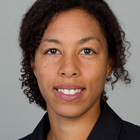Briefing Paper
Post 2015: why the development finance debate needs to make the move from quantity to quality
Dafe, Florence / Renate Hartwig / Heiner JanusBriefing Paper (22/2013)
Bonn: German Development Institute / Deutsches Institut für Entwicklungspolitik (DIE)
The implementation of a future global development agenda with a broader set of goals replacing the Millennium Development Goals (MDGs) after 2015 will require greater and more efficient financing. The failure to establish a sound financial foundation risks jeopardising the success of any new development agenda right from the start. Although an intergovernmental Expert Committee on Sustainable Development Financing has been established, more high-level political dialogue on the means to implement the post-2015 agenda is needed. If the international community does not ucceed in advancing this discourse properly, there is a risk of having “too little finance, too late”. In the current environment of fiscal constraints in donor countries, it is unlikely that additional financial resources can be mobilised solely through aid. Hence, other sources of financing and new financing mechanisms will have to be brought in to bridge the funding gap. Whether private or public, domestic or foreign, each financing source and funding mechanism has unique characteristics that have to be carefully adapted to local contexts. This briefing paper looks at specific examples – taxes, South-South cooperation, aid and innovative financing mechanisms – to explore ways to move beyond quantity, in order to focus on improving the quality of financing. Increasing the level of domestic resources through taxation is a case in point for illustrating the strengths, limitations and specific conditions of financial resources in the post-2015 debate. More efficient and effective tax systems in developing countries can have positive effects on governance and accountability. At the same time, financial resources that can be collected through taxation will still be limited because tax bases are narrow and the political commitment is lacking. Further, the scope of taxation in developing countries is also affected by international tax regimes, which still fail to curb illicit financial flows and provide windows for tax evasion. The post-2015 agenda can address such challenges at several levels to make more efficient and effective use of the different resources available. This will require country leaders working together to establish the right policy environment at the national and international levels. For the implementation of a future development agenda, the political and financial processes need to go hand in hand. The international community should consider three important aspects:
- Using the right tool for the right job: Increasing the efficiency and effectiveness of individual financial flows and financing mechanisms requires careful consideration of respective potentials, limitations and country contexts.
- Tackling global framework conditions: The post- 2015 agenda has the great potential to contribute towards a more stable and equitable financial system, and to improve the coordination of international development cooperation.
- Putting policies first: Improving the developmental impacts of financial flows requires good policies. A debate on the “means of implementation” for a post-2015 agenda is at least as important as the debate on the content of a future agenda.
Contact
Cornelia Hornschild
Publication Coordinator
E-mail Cornelia.Hornschild@idos-research.de
Phone +49 (0)228 94927-135
Fax +49 (0)228 94927-130
Alexandra Fante
Librarian/ Open Access Coordinator
E-Mail Alexandra.Fante@idos-research.de
Telefon +49 (0)228 94927-321
Fax +49 (0)228 94927-130




![[Translate to English:] Photo: Alexandra Fante, Bibliothekarin/Open Access-Koordinatorin](/fileadmin/_processed_/f/0/csm__c_Deutsches-Institut-fuer-Entwicklungspolitik_Fante_94ce4fa1ba.jpg)